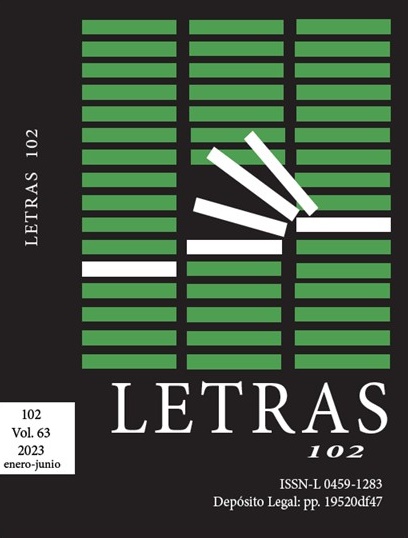Imagination in reading comprehension
DOI:
https://doi.org/10.56219/letras.v63i102.1976Keywords:
imagination, reading comprehension, reading promotion, teacher trainingAbstract
The purpose of this article is to share the importance of imagination as a central element in the research that gave rise to the doctoral work entitled Sherezade goes to school, a theoretical proposal for teacher training in reading promotion for primary education. The objective was to delve into the construction of arguments that support the premise that imagination has a vital place in reading comprehension and, therefore, should have a space in the daily life of the classroom. Documentary research was carried out, a questionnaire was applied to fourteen storytellers and through content analysis the texts and responses were reviewed. The main conclusions reached are: imagination is a fundamental requirement for comprehension, and the need to include in teacher training their preparation as promoters of reading.
Downloads
References
Álvarez Ramírez, William. (201). Las Formas de la imaginación en Kant. Praxis Filosófica Nueva serie, Nº 40, enero-junio 2015: pp.35-62. ISSN (D): 2389-9387. DOI: https://doi.org/10.25100/pfilosofica.v0i40.3011
Bárcena, F, Larrosa, J, Mèlich, J-C. (2006). Pensar la educación como experiencia. Revista Portuguesa de Pedagogía, año 40-1, 2006, pp. 233-259. DOI: https://doi.org/10.14195/1647-8614_40-1_11
Beauport, E. (2008). Las tres caras de la mente. Editorial Alfa, Venezuela.
Bértolo, C. (2017). La cena de los notables. Editorial Babel, pp. 61-87
Cervera Borrás, J. (2003). La Literatura Infantil: los límites de la Didáctica. Disponible en: https://www.cervantesvirtual.com/obra-visor/la-literatura-infantil-los-limites-de-la-didactica--0/html/ffbcc644-82b1-11df-acc7-002185ce6064_1.html#I_1_. Recuperado noviembre de 2022
Droz, C. (1994). Simone Weil et l’imagination, Cahiers Simone Weil. Simone Weil et la Poésie, vol. xvii, nº 2, junio 1994, pp. 125-144.
Fuster, A. L. (2013). Demorarse en el mirar. La imaginación en Simone Weil, Iris Murdoch y Hannah Arendt. Revista Internacional de Filosofía, nº 6, 2013, p.141-157. ISNN:1130-0507. Disponible en: https://proyectoscio.ucv.es/wp-content/uploads/2013/12/12-Fuster-Peiro.pdf
Heuer, W. (2005). La imaginación es el prerrequisito del comprender (Arendt): sobre el puente. Cuadernos de Ética y Filosofía Política 7,2/2005, pp.37-51.
Larrosa, J. (2003). Entre las lenguas. Lenguaje y educación después de Babel. Barcelona. Laertes.
Larrosa, J. (2013). La experiencia de la lectura: estrategias sobre literatura y formación. Fondo de Cultura Económica, México.
Patte, G. (2011). ¿Qué los hace leer así? Los niños, la lectura y las bibliotecas. FCE, Colección Espacios para la lectura.
RESAD, La Narración Oral Escénica (1992, febrero 12). [Archivo de Vídeo]. Recuperado de: https://youtu.be/OZNS-Gtp578
Ricoeur, P. (1996) Tiempo y narración III. El tiempo narrado. Siglo XXI, México.
Ricoeur, P. (1999). Filosofía y lenguaje, en Historia y narratividad. Paidós/I.C.E.-U.A.B., Barcelona.
Rosenblatt, L. (1996). El Modelo Transaccional: La teoría transaccional de la lectura y la escritura. Textos en contexto. 1. Los procesos de lectura y escritura, 1996. Buenos Aires: Lectura y Vida, Asociación Internacional de Lectura.
Published
How to Cite
Issue
Section
License
Copyright (c) 2023 LETRAS

This work is licensed under a Creative Commons Attribution-NonCommercial-ShareAlike 4.0 International License.
Letras magazine retains the patrimonial rights (copyright) of the published works, which favors and allows their reuse under the license (CC BY - NC - SA 4.0), for which they can be copied, used, disseminated, transmitted and expose publicly, as long as the authorship and original source of its publication (magazine, publisher, URL and DOI of the work) is cited, they are not used for commercial or onerous purposes and the existence and specifications of this use license are mentioned.















